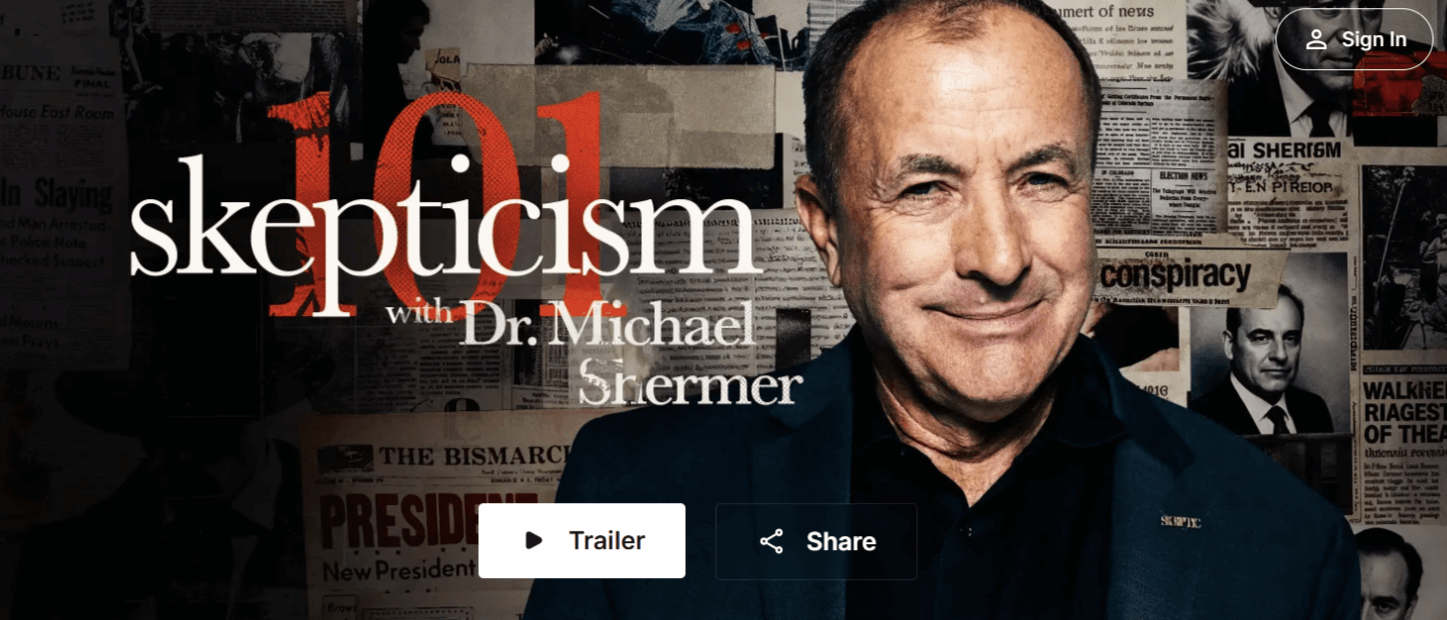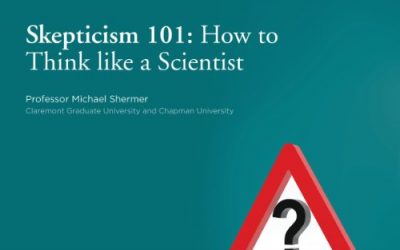🌟 New Year Offer 🌟
Celebrate 2025 with 30% OFF on all products! Use code: NEWYEAR2025. Hurry, offer ends soon!
A nine-hour course, Dr. Michael Shermer explores the foundations of critical thinking, scientific reasoning, and the nature of belief through an interdisciplinary lens.
File Size: 15.910 GB.
Format File: 8 MP4, 8 SRT, 9 TXT.
Michael Shermer – Skepticism 101

Dr. Michael Shermer
Professor
In Skepticism 101, a nine-hour course, Dr. Michael Shermer explores the foundations of critical thinking, scientific reasoning, and the nature of belief through an interdisciplinary lens. He examines key concepts including truth, rationality, causation, and cognitive biases, while providing practical tools for evaluating claims and understanding human decision-making processes. Through detailed analyses of conspiracy theories, religious beliefs, and philosophical questions about God’s existence, the course demonstrates how scientific skepticism can be applied to complex real-world issues. The material concludes by bridging the gap between scientific methodology and human belief systems, offering frameworks for understanding both empirical truth and meaningful mythological narratives in modern society.
Lectures

1. What Can We Know?

2. The Methods of Science

3. How We Make Decisions
In lecture three, Dr. Shermer explores rationality, irrationality, and free will, examining their roles in decision-making, self-control, and the pursuit of meaningful goals. Our discussion covers how the brain processes decisions through the prefrontal cortex, the challenges of balancing short-term gratification with long-term objectives, and strategies for rational self-control. The lecture concludes by exploring the relationship between happiness, meaningfulness, and rationality, emphasizing how purposeful actions, personal identity, and individual values shape fulfilling goals rooted in more than rational calculation.
4. Cause and Effect
In lecture four, we study the fundamentals of scientific thinking and causality, examining how science distinguishes between correlation and causation through methods like randomized controlled trials and natural experiments. The lecture delves into Bayesian reasoning as a tool for evaluating probabilities and updating beliefs based on evidence, using examples from medical diagnosis to UFO sightings to demonstrate how base rates and prior probabilities influence scientific conclusions. The discussion emphasizes the importance of maintaining an open yet skeptical mind while acknowledging that most effects have multiple causes.
5. Mistakes Our Brains Make
In lecture five, we learn about various cognitive biases and thinking errors that affect human decision-making and perception, including the anchoring effect, availability bias, and confirmation bias. Dr. Shermer demonstrates these concepts through interactive experiments and real-world examples, from the Monty Hall problem to false memory phenomena, highlighting how our brains process information using heuristics rather than pure logic. The lecture concludes by examining how statistical misunderstandings and pattern recognition tendencies can lead to establishing false correlations and beliefs in coincidences.
6. Why We Believe Conspiracies
In lecture six, we delve into the complex world of conspiracy theories, examining their various types, the psychological and sociological factors behind their appeal, and how to evaluate their credibility. The discussion explores three primary forms of conspiracism, while addressing cognitive biases, logical fallacies, and the human tendency for pattern recognition and threat detection. Historical examples of real conspiracies are highlighted alongside unfounded theories, emphasizing the importance of critical thinking and evidence-based analysis to understand the potential deeper truths conspiracy theories may reflect, even when factually inaccurate.
7. Miracles, Myths, and Meaning
In lecture seven, Dr. Michael Shermer turns to the concepts of miracles, myths, and religion through a skeptical and scientific lens, examining both historical religious claims and modern-day miracle accounts with rational inquiry. The discussion analyzes David Hume’s philosophical framework for evaluating miraculous claims, including how to weigh evidence against probability, and suggests that religious miracle stories may be better understood as meaningful mythological narratives rather than literal historical events. The lecture emphasizes the deeper psychological and social significance of these stories over their empirical truth claims, arguing that myths serve as archetypal representations of the human condition, offering guidance, explanation, and normative values.
8. The Question of God
In our eighth and final lecture, we venture into the complex question of God’s existence, examining various philosophical positions including theism, atheism, agnosticism, and fideism, while discussing key arguments for God’s existence such as Thomas Aquinas’ five proofs. The lecture delves into why people believe in God, analyzing factors like genetics, neuroscience, parental influence, and cultural context, before concluding with “Shermer’s God Gambit” about advanced civilizations and technology being indistinguishable from divine powers. The discussion emphasizes the importance of understanding belief through multiple lenses, from scientific evidence to personal experience and pragmatic reasoning.
Course Features
- Lectures 0
- Quizzes 0
- Duration 10 weeks
- Skill level All levels
- Language English
- Students 115
- Assessments Yes






